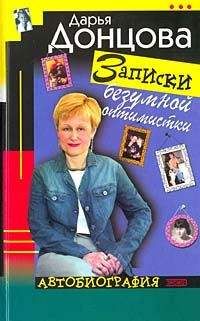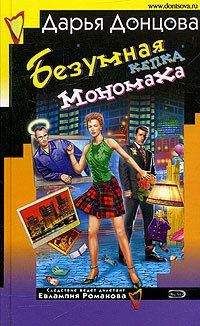Ли Чайлд - "Этаж смерти" with W_cat

Обзор книги Ли Чайлд - "Этаж смерти" with W_cat
Lee Child
Killing Floor
Предуведомление.
Данная книга из серии «Джек Ричер», сделана из двух: «Killing Floor» и «Этаж смерти», автор Ли Чайлд.
В данном файле - первая половина книги (17 глав).
Причины такого "образания" следующие:
1. Лень, плюс знание о двух последующимх пунктах.
2. Файл из двух книг будет слишком "тяжел" (в некоторых читалках, открываться будет плохо).
3. По своему опыту знаю, что упорства хватит, ну максимум на три главы, но если ВАША сила воли достоточна для прочтения половины книги... то ВЫ сможете прочитать ее и целиком в оригинале, без подсказок.
Я старался соотнести по смыслу английский текст с его переводом, ведь переводчик никогда не следует точно разбивке исходного текста. Но отсутствие «разжеванных» ответов, как мне кажется, будет лучше стимулировать мысль учащегося.
Полноценно работать с данным пособием можно на устройстве, поддерживающем гиперссылки: компьютер или различные «читалки» с сенсорным экраном, желательно со словарем.
Причем тут W_cat? Дело в том, что я собираюсь сделать несколько книг в данном стиле, и хотелось бы, чтобы книга сразу заявляла о своем оформлении и назначении, свою фамилию использовать я посчитал нескромным, ограничусь «ником».
Успехов!
Ю. Карпов.
1
[1] I WAS ARRESTED IN ENO’S DINER. AT TWELVE O’CLOCK. I was eating eggs and drinking coffee. A late breakfast, not lunch. I was wet and tired after a long walk in heavy rain. All the way from the highway to the edge of town.
[2] The diner was small, but bright and clean. Brand-new, built to resemble a converted railroad car. Narrow, with a long lunch counter on one side and a kitchen bumped out back. Booths lining the opposite wall. A doorway where the center booth would be.
[3] I was in a booth, at a window, reading somebody’s abandoned newspaper about the campaign for a president I didn’t vote for last time and wasn’t going to vote for this time. Outside, the rain had stopped but the glass was still pebbled with bright drops. I saw the police cruisers pull into the gravel lot. They were moving fast and crunched to a stop. Light bars flashing and popping. Red and blue light in the raindrops on my window. Doors burst open, policemen jumped out. Two from each car, weapons ready. Two revolvers, two shotguns. This was heavy stuff. One revolver and one shotgun ran to the back. One of each rushed the door.
[4] I just sat and watched them. I knew who was in the diner. A cook in back. Two waitresses. Two old men. And me. This operation was for me. I had been in town less than a half hour. The other five had probably been here all their lives. Any problem with any of them and an embarrassed sergeant would have shuffled in. He would be apologetic. He would mumble to them. He would ask them to come down to the station house. So the heavy weapons and the rush weren’t for any of them. They were for me. I crammed egg into my mouth and trapped a five under the plate. Folded the abandoned newspaper into a square and shoved it into my coat pocket. Kept my hands above the table and drained my cup.
[5] The guy with the revolver stayed at the door. He went into a crouch and pointed the weapon two-handed. At my head. The guy with the shotgun approached close. These were fit lean boys. Neat and tidy. Textbook moves. The revolver at the door could cover the room with a degree of accuracy. The shotgun up close could splatter me all over the window. The other way around would be a mistake. The revolver could miss in a close-quarters struggle and a long-range shotgun blast from the door would kill the arresting officer and the old guy in the rear booth as well as me. So far, they were doing it right. No doubt about that. They had the advantage. No doubt about that, either. The tight booth trapped me. I was too hemmed in to do much. I spread my hands on the table. The officer with the shotgun came near.
[6] “Freeze! Police!” he screamed.
[7] He was screaming as loud as he could. Blowing off his tension and trying to scare me. Textbook moves. Plenty of sound and fury to soften the target. I raised my hands. The guy with the revolver started in from the door. The guy with the shotgun came closer. Too close. Their first error. If I had to, I might have lunged for the shotgun barrel and forced it up. A blast into the ceiling perhaps and an elbow into the policeman’s face and the shotgun could have been mine. The guy with the revolver had narrowed his angle and couldn’t risk hitting his partner. It could have ended badly for them. But I just sat there, hands raised. The guy with the shotgun was still screaming and jumping.
“Out here on the floor!” he yelled.
[8] I slid slowly out of the booth and extended my wrists to the officer with the revolver. I wasn’t going to lie on the floor. Not for these country boys. Not if they brought along their whole police department with howitzers.
[9] The guy with the revolver was a sergeant. He was pretty calm. The shotgun covered me as the sergeant holstered his revolver and unclipped the handcuffs from his belt and clicked them on my wrists. The backup team came in through the kitchen. They walked around the lunch counter. Took up position behind me. They patted me down. Very thorough. I saw the sergeant acknowledge the shakes of the heads. No weapon.
[10] The backup guys each took an elbow. The shotgun still covered me. The sergeant stepped up in front. He was a compact, athletic white man. Lean and tanned. My age. The acetate nameplate above his shirt pocket said: Baker. He looked up at me.
[11] “You are under arrest for murder,” he said. “You have the right to remain silent. Anything you say may be used as evidence against you. You have the right to representation by an attorney. Should you be unable to afford an attorney, one will be appointed for you by the State of Georgia free of charge. Do you understand these rights?”
[12] It was a fine rendition of Miranda. He spoke clearly. He didn’t read it from a card. He spoke like he knew what it meant and why it was important. To him and to me. I didn’t respond.
[13] “Do you understand your rights?” he said again.
[14] Again I didn’t respond. Long experience had taught me that absolute silence is the best way. Say something, and it can be misheard. Misunderstood. Misinterpreted. It can get you convicted. It can get you killed. Silence upsets the arresting officer. He has to tell you silence is your right but he hates it if you exercise that right. I was being arrested for murder. But I said nothing.
[15] “Do you understand your rights?” the guy called Baker asked me again. “Do you speak English?”
[16] He was calm. I said nothing. He remained calm. He had the calm of a man whose moment of danger had passed. He would just drive me to the station house and then I would become someone else’s problem. He glanced round his three fellow officers.
[17] “OK, make a note, he’s said nothing,” he grunted. “Let’s go.”
[18] I was walked toward the door. At the door we formed a single file. First Baker. Then the guy with the shotgun, walking backward, still with the big black barrel pointing at me. His nameplate said: Stevenson. He too was a medium white man in good shape. His weapon looked like a drainpipe. Pointing at my gut. Behind me were the backup guys. I was pushed through the door with a hand flat on my back.
[19] Outside in the gravel lot the heat was up. It must have rained all night and most of the morning. Now the sun was blasting away and the ground was steaming. Normally this would be a dusty hot place. Today it was steaming with that wonderful heady aroma of drenched pavement under a hot noon sun. I stood face up to the sun and inhaled as the officers regrouped. One at each elbow for the short walk to the cars. Stevenson still on the ball with the pump-action. At the first car he skipped backward a step as Baker opened the rear door. My head was pushed down. I was nudged into the car with a neat hip-to-hip contact from the left-hand backup. Good moves. In a town this far from anywhere, surely the result of a lot of training rather than a lot of experience.
[20] I was alone in the back of the car. A thick glass partition divided the space. The front doors were still open. Baker and Stevenson got in. Baker drove. Stevenson was twisted around keeping me under observation. Nobody talked. The backup car followed. The cars were new. Quiet and smooth riding. Clean and cool inside. No ingrained traces of desperate and pathetic people riding where I was riding.
[21] I looked out of the window. Georgia. I saw rich land. Heavy, damp red earth. Very long and straight rows of low-bushes in the fields. Peanuts, maybe. Belly crops, but valuable to the grower. Or to the owner. Did people own their land here? Or did giant corporations? I didn’t know.
[22] The drive to town was short. The car hissed over the smooth soaked tarmac. After maybe a half mile I saw two neat buildings, both new, both with tidy landscaping. The police station and the firehouse. They stood alone together, behind a wide lawn with a statue, north edge of town. Attractive county architecture on a generous budget. Roads were smooth tarmac, sidewalks were red blocks. Three hundred yards south, I could see a blinding white church steeple behind a small huddle of buildings. I could see flagpoles, awnings, crisp paint, green lawns. Everything refreshed by the heavy rain. Now steaming and somehow intense in the heat. A prosperous community. Built, I guessed, on prosperous farm incomes and high taxes on the commuters who worked up in Atlanta.
[23] Stevenson still stared at me as the car slowed to yaw into the approach to the station house. A wide semicircle of driveway. I read on a low masonry sign: Margrave Police Headquarters. I thought: should I be worried? I was under arrest. In a town where I’d never been before. Apparently for murder. But I knew two things. First, they couldn’t prove something had happened if it hadn’t happened. And second, I hadn’t killed anybody.
[24] Not in their town, and not for a long time, anyway.
2
[25] WE PULLED UP AT THE DOORS OF THE LONG LOW BUILDING. Baker got out of the car and looked up and down along the frontage. The backup guys stood by. Stevenson walked around the back of our car. Took up a position opposite Baker. Pointed the shotgun at me. This was a good team. Baker opened my door.
[26] “OK, let’s go, let’s go,” he said. Almost a whisper.
[27] He was bouncing on the balls of his feet, scanning the area. I pivoted slowly and twisted out of the car. The handcuffs didn’t help. Even hotter now. I stepped forward and waited. The backup fell in behind me. Ahead of me was the station house entrance. There was a long marble lintel crisply engraved: Town of Margrave Police Headquarters. Below it were plate-glass doors. Baker pulled one open. It sucked against rubber seals. The backup pushed me through. The door sucked shut behind me.
[28] Inside it was cool again. Everything was white and chrome. Lights were fluorescent. It looked like a bank or an insurance office. There was carpet. A desk sergeant stood behind a long reception counter. The way the place looked, he should have said: how may I help you, sir? But he said nothing. He just looked at me. Behind him was a huge open-plan space. A dark-haired woman in uniform was sitting at a wide, low desk. She had been doing paperwork on a keyboard. Now she was looking at me. I stood there, an officer on each elbow. Stevenson was backed up against the reception counter. His shotgun was pointed at me. Baker stood there, looking at me. The desk sergeant and the woman in uniform were looking at me. I looked back at them.
[29] Then I was walked to the left. They stopped me in front of a door. Baker swung it open and I was pushed into a room. It was an interview facility. No windows. A white table and three chairs. Carpet. In the top corner of the room, a camera. The air in the room was set very cold. I was still wet from the rain.
[30] I stood there and Baker ferreted into every pocket. My belongings made a small pile on the table. A roll of cash. Some coins. Receipts, tickets, scraps. Baker checked the newspaper and left it in my pocket. Glanced at my watch and left it on my wrist. He wasn’t interested in those things. Everything else was swept into a large Ziploc bag. A bag made for people with more in their pockets than I carry. The bag had a white panel printed on it. Stevenson wrote some kind of a number on the panel.
[31] Baker told me to sit down. Then they all left the room. Stevenson carried the bag with my stuff in it. They went out and closed the door and I heard the lock turning. It had a heavy, well-greased sound. The sound of precision. The sound of a big steel lock. Sounded like a lock that would keep me in.
[32] I FIGURED THEY WOULD LEAVE ME ISOLATED FOR A WHILE. It usually happens that way. Isolation causes an urge to talk. An urge to talk can become an urge to confess. A brutal arrest followed by an hour’s isolation is pretty good strategy.
[33] But I figured wrong. They hadn’t planned an hour’s isolation. Maybe their second slight tactical mistake. Baker unlocked the door and stepped back in. He carried a plastic cup of coffee. Then he signaled the uniformed woman into the room. The one I’d seen at her desk in the open area. The heavy lock clicked behind her. She carried a metal flight case which she set on the table. She clicked it open and took out a long black number holder. In it were white plastic numbers.



